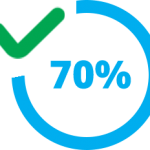
Sanremo, 6th February 2017
The Convention on the High Seas (replaced by United Nations Convention on the Law of the Sea) defined “high seas” to mean “all parts of the sea that are not included in the territorial sea or in the internal waters of a State” and where “no State may validly purport to subject any part of them to its sovereignty“.
Consequently “high seas seagoing ship” means a ship other than those which navigate exclusively into the 12 nautical miles territorial waters, inland waters or in waters within, or closely adjacent to, sheltered waters or areas where port regulations apply.
Resolution No.2/E, released by Agenzia delle Entrate (Italian Tax Office) on 12th January 2017, gives a clear interpretation of “high seas” not only in relation to the technical nature of the ship but also to its fiscal aspects. In accordance to the provisions of said Resolution, a ship can be qualified as a “high seas seagoing ship” if she has performed more than 70% of the voyages sailing the “high seas” in the past calendar year.
If the ship effectively met this specific condition (voyages > 70%), she is qualified to benefit of the VAT exemption according to Article 8-bis, which meets the provisions of Article 148 points a), c) e d) of the EU Directive 112/2006/CE, stating that the VAT exemption regime can be applied to those commercial operations done by vessels “used for navigation on the high seas and carrying passenger for reward or used for commercial purposes (including the Charter activity), industrial or fishing activities”.
Official proofs and documents needs to be provided to attest that the ship really performed more than 70% of the voyages sailing the “high seas”.
Therefore Italy really seems about to follow in the footsteps of France with its law from 12th May 2015, better known to all as BOFiP (the French regulations governing VAT exemption).
For what is closely related to the Yachting and Charter industry, the hereinbefore mentioned commercial operations can be quickly summarized in the following points:
a. purchase of goods and provisions
b. purchase of fuel and lube oil (bunkering)
c. purchase of spare parts, machineries and equipment in general
d. repair and maintenance works on board
Despite the Italian Tax Authorities have provided clear information they didn’t provide complete ones. In fact there’s still plenty of grey areas and perplexities such as the way to calculate the 70% (time or number of voyages?), which documents and proofs can be considered as “official”, etc.
The most involved Italian fiscal representatives are now working hard to collect all the necessary info which will be shared with you as soon as possible.
For any additional info please call or email us to info@yachtwelfare.it. We remain at your disposal.
DOWNLOAD